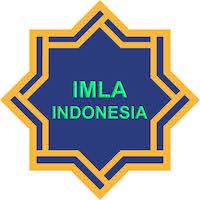Development of Canva Learning Media in Increasing Student Self-Efficacy
DOI:
https://doi.org/10.18592/jams.v10i2.8882Keywords:
ArabicAbstract
This article discusses the professional competence of Arabic language teachers in six schools in the Central Kalimantan region which have not met according to the standards set by the Regulation of the Minister of National Education of the Republic of Indonesia Number 16 of 2007 concerning Academic Qualification Standards and Teacher Competency. This Research used the qualitative method by implementing phenomenological interviews. Through the results of the research, three Arabic teachers were found with inappropriate educational backgrounds. During the learning reflection process, the three Arabic teachers did many reflection activities to improve the quality of learning, such as evaluating learning, researching in the classroom, studying alone, observing themselves and students, attending training, being innovative, recording the learning process, analyzing students' needs, and meeting students' needs by analyzing them. The study suggests that Arabic teachers should regularly reflect to improve the quality of learning and meet professional competency standards.References
Aldena, S. “Developing Songs for Children to Upgrade the Arabic Vocabulary Comprehension/تطوير الأغاني للأطفال لترقية استيعاب المفردات العربية.” Jurnal Al-Maqayis, 2021. http://jurnal.uin-antasari.ac.id/index.php/maqoyis/article/view/4800.
Bandura, Albert. Self-Efficacy The Exercise of Control. New York: Freeman and Company, 1997.
Rahma, Fatimah Nur, Fransisca Wulandari, Difa Ul Husna, Universitas Ahmad, and Dahlan Yogyakarta. “Pengaruh Pembelajaran Daring Di Masa Pandemi Covid-19 Bagi Psikologis Siswa Sekolah Dasar.” Edukatif : Jurnal Ilmu Pendidikan 3, no. 5 (2021): 2470–77. https://doi.org/https://doi.org/10.31004/edukatif.v3i5.864.
Raoofi, Saeid, Bee Hoon Tan, and Swee Heng Chan. “Self-Efficacy in Second/Foreign Language Learning Contexts.” English Language Teaching 5, no. 11 (2012): 60–73. https://doi.org/10.5539/elt.v5n11p60.
Rohmah, Faridah Ainur. “Efikasi Diri Untuk Menurunkan Stres.” Humanitas 4, no. 1 (2007): 59–67.
Santi Deliani Rahmawati, Halimatus Saidah. “Meningkatkan Self Efficacy (Efikasi Diri) Siswa Terhadap Pembelajaran Matematika Dengan Menggunakan Model ARCS.” Universitas Islam Megeri Syarof Hidayatulloh, 2020. http://repositorio.unan.edu.ni/2986/1/5624.pdf.
Sopiah, Cucu. “Dampak Pembelajaran Online Terhadap Pendidikan Karakter Anak Usia Dini.” Jurnal Jendela Bunda PG PAUD UMC 8, no. 2 (2021): 21–31.
Suriadi, Harri Jumarto, Firman Firman, and Riska Ahmad. “Analisis Problema Pembelajaran Daring Terhadap Pendidikan Karakter Peserta Didik.” Edukatif : Jurnal Ilmu Pendidikan 3, no. 1 (2021): 165–73. https://doi.org/10.31004/edukatif.v3i1.251.
Uliyah, Asnul, and Zakiyah Isnawati. “Metode Permainan Edukatif Dalam Pembelajaran Bahasa Arab.” Shaut Al Arabiyyah 7, no. 1 (2019): 31. https://doi.org/10.24252/saa.v1i1.9375.
Downloads
Published
Issue
Section
License
Copyright (c) 2023 Lailatul Qomariyah, Tamim Mulloh

This work is licensed under a Creative Commons Attribution 4.0 International License.
Authors who publish with this journal agree to the following terms:
- Authors retain copyright and grant the journal right of first publication with the work simultaneously licensed under a Creative Commons Attribution License that allows others to share the work with an acknowledgement of the work's authorship and initial publication in this journal.
- Authors are able to enter into separate, additional contractual arrangements for the non-exclusive distribution of the journal's published version of the work (e.g., post it to an institutional repository or publish it in a book), with an acknowledgement of its initial publication in this journal.
- Authors are permitted and encouraged to post their work online (e.g., in institutional repositories or on their website) after the submission process, as it can lead to productive exchanges, as well as earlier and greater citation of published work.






